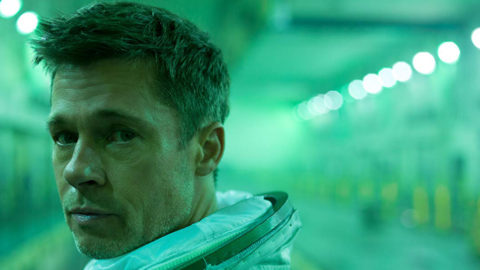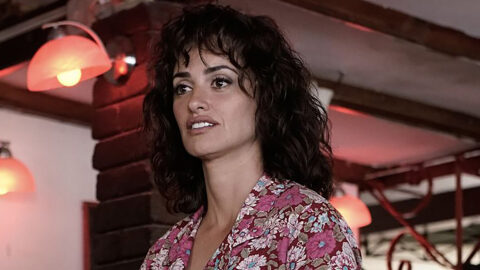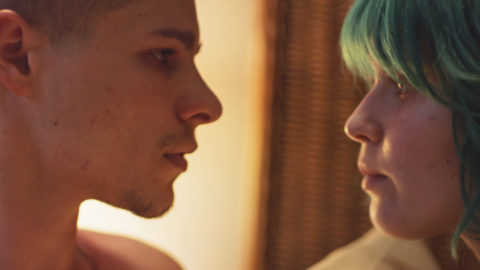Dispatch: Venice 2019
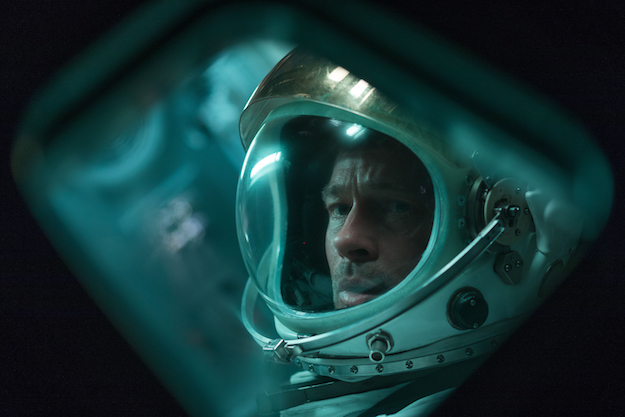
Ad Astra (James Gray, 2019)
The 76th edition of Venice opened with something other than Hollywood spectacle—Hirokazu Kore-eda’s The Truth, starring Catherine Deneuve and Juliette Binoche as mother and daughter artists in a pleasing passive-aggressive battle of wills—and, whether or not this was a direct result, the temperature seemed cooler on the usually overheated fall hype machine. Not that the actual weather was merciful, as a clinging humidity descended upon the sleepy island where the festival takes place. But in the temperate festival environment, you could watch a living, breathing film like Noah Baumbach’s Marriage Story which received deserved praise, alongside some wonderfully strange and ambitious competition companions (Wasp Network, Ema, The Laundromat).
Meanwhile, in space, James Gray’s Ad Astra rocketed Brad Pitt all the way out to Neptune in search of his dad (played by Tommy Lee Jones). Rather than seek to reinvent the all-American space epic, Gray steers into the vulnerability vortex, fully committing the cinematic flourishes of the milieu to an increasingly high-stakes confrontation with emotional absence. Pitt’s Roy McBride is given to voiceover monologue pierced with emptiness even as it’s delivered in resting-heart-rate tones; the star scales another peak with this strong, silent, screaming-on-the-inside type. Like Denis and Soderbergh (whose regret-heavy reworking of Solaris has echoes here), Gray sees space travel as leading to a reckoning with oneself more than with the infinite, as induced by the fortress of solitude that is the long-haul voyage (as if transatlantic flights aren’t harrowing enough). Along the way, the filmmaker orchestrates a couple of the year’s best action sequences, both surprise attacks.
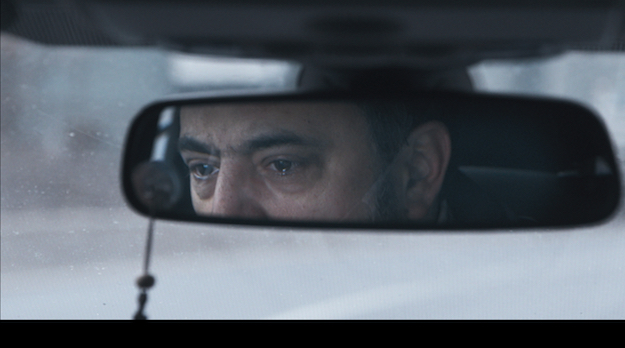
Collective (Alexander Nanau, 2019)
Ad Astra and Marriage Story lit up the second day of the festival, deservedly so, but it’s a shame that an entire week had to pass for Australian filmmaker Shannon Murphy’s Babyteeth to surface—especially coming from one of the two female filmmakers in the competition (the other being Haifaa Al-Mansour, whose opening-day selection The Perfect Candidate told an inspiring story of enormous societal risk-taking but, dramatically, never shook an air of safe predictability). My colleague Jonathan Romney has already written plenty about Babyteeth in these pages, but: despite everything you might presuppose about a film centered on a teenager with a terminal illness who falls hard for a rakish 23-year-old drug addict, I’ll second that recommendation. Murphy’s sprightly, at times electric debut feature (from a script by playwright Rita Kalnejais) makes for a formidable and often funny chronicle of the moment-to-moment negotiations in a family making the most of a closing window, thanks to a superb cast: Eliza Scanlen (soon to be seen in Little Women) poignant as Milla; excellent Essie Davis and Ben Mendelsohn as Milla’s parents; and the elastically energetic Toby Wallace as interloper Moses, a role that earned the actor a Venice award that might as well apply to all of them.
Moving right along to… corruption in Romania! Part of the absurdity of Venice is seeing the biggest of showboating movies cruise right next to sidebar selections that may or may not trickle their way through the festival system (and sometimes not make it out into the theatrical wild). Yet Alexander Nanau’s miraculously assembled documentary Collective should put to shame any investigative drama that might emerge in the coming year, with its tick-tock story of a gruesome club fire in 2015 and the scandals uncovered by journalists, all followed in what feels like real time. The conflagration killed 27 right away—the band on stage had just howled out a song about corruption—but more died later at ill-equipped hospital facilities that were buying diluted antibacterial products from a crooked pharma company. After initially resembling a very local story about victims and survivors and their efforts to expose the truth, Collective opens out into a procedural portrayal of journalism at work and of a creaky post-bloc government laid bare, with so-called modernity generally looking increasingly feeble. With incredible access to newsrooms and the office of a reformist government minister, Nanau puts on display the kind of fearless journalism other Western countries need more of and connects the dots by including Romanian elections and the maddening rise of destructive right-wing polemics and policy.
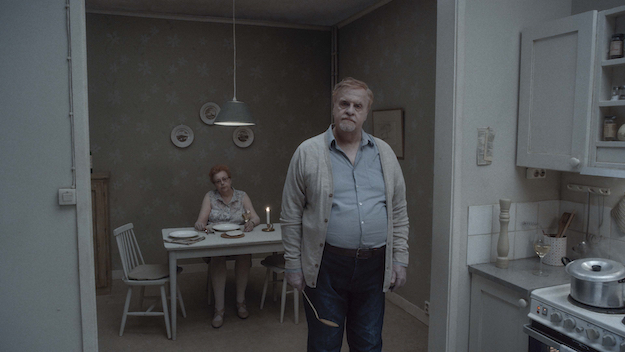
About Endlessness (Roy Andersson, 2019)
Five years ago, Roy Andersson won the Golden Lion here for A Pigeon Sat on a Branch Reflecting on Existence, but his latest, About Endlessness, is the stronger, sharper work. Even if Andersson returns to his template of pallid civilians living lives of quiet desperation in diorama-like surroundings, About Endlessness plays out a melody of melancholic bemusement that hits home rather than feeling like a series of single-panel Far Side-esque punchlines. Not as expansive but also sneaking up on me was the game-playing of The Truth, culminating in a moment when Catherine Deneuve’s acting-royalty diva essentially “breaks character” in real life. Finally connecting with her daughter (Binoche) in an embrace, she suddenly pulls back and complains that she did not tap this energy and emotion for her acting—it’s a scene that Deneuve described to me as “terrifying” to prepare. Finally, I would be remiss not to give some kind of fair warning about another competition title, The Painted Bird, a bludgeoning adaptation of the controversial 1965 Jerzy Kosinski novel. While impressively mounted in black and white by Czech director Václav Marhoul and DP Vladimir Smutny, and featuring Stellan Skarsgård, Udo Kier, and Harvey Keitel in assorted roles, this picaresque story of a Jewish boy struggling to survive in World War II is a gruelingly uncompromising but often tone-deaf litany of atrocity and abuse that misplays its gallows humor and grows monotonous more than moving.
As for this year’s winner of the Golden Lion—you know, the other film with a Stephen Sondheim song—we’ll have more to say about Joker down the road (it opens October 4). At the film’s Saturday morning press screening, following the longest queues yet, I remember settling in to wait for the movie to begin and turning to look around out of boredom. My eyes alighted on the row of seats reserved for the competition jury, and the last thing I remember before the lights went down was jury president Lucrecia Martel, sipping from a maté cup and smiling.
Nicolas Rapold is the editor-in-chief of Film Comment and hosts The Film Comment Podcast.




